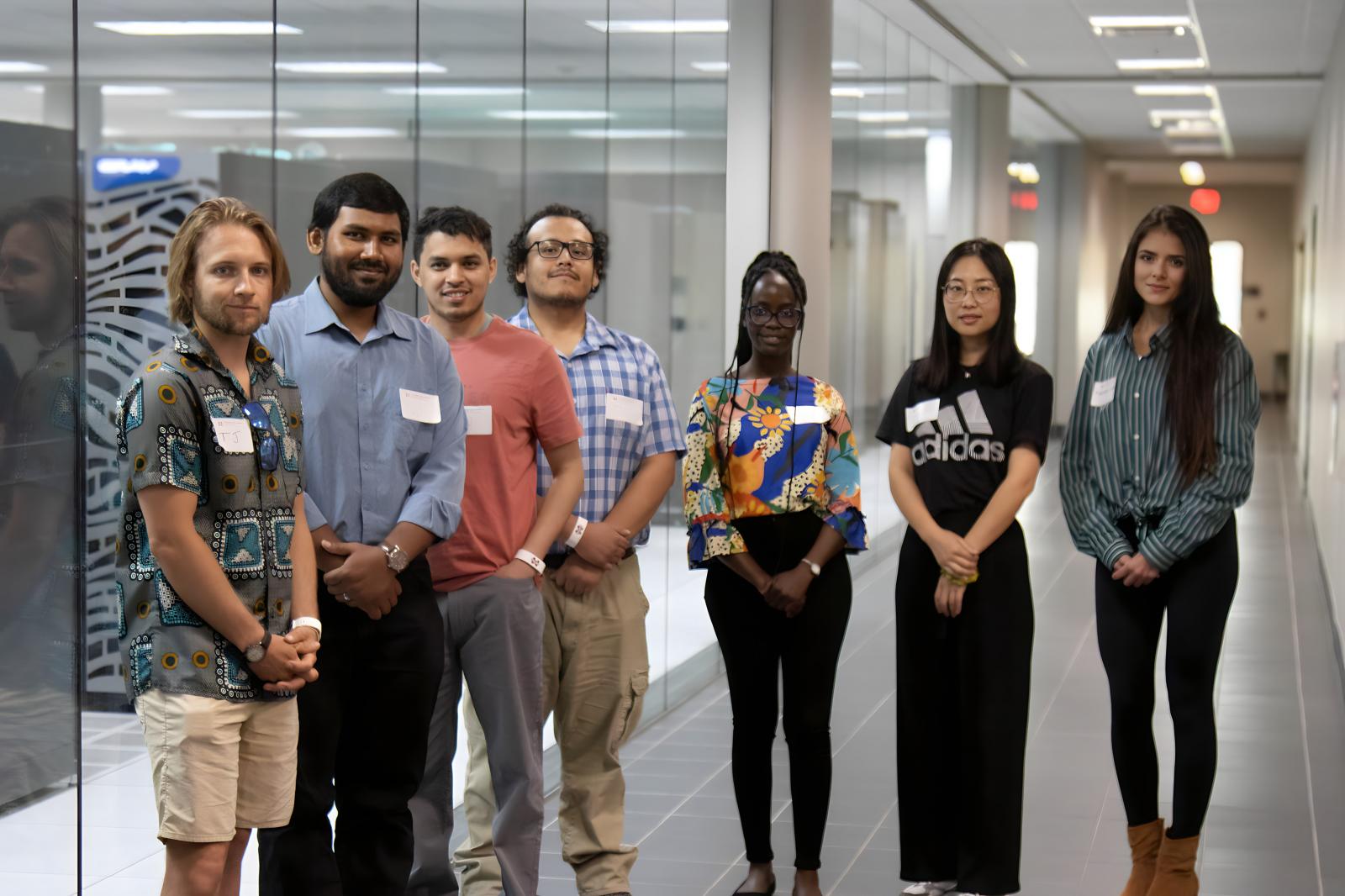MSU’s 2025 Graduate Summer Research Experience cohort grows research skills with advanced tools, collaboration
Contact: James Carskadon
STARKVILLE, Miss.—This summer, seven graduate students from across the country gathered at Mississippi State to address real-world problems in agriculture using geospatial science and high-performance computing.
The MSU Geosystems Research Institute hosted the third cohort in its Graduate Summer Research Experience funded by the U.S. Department of Agriculture. Together, the aspiring scientists took on a collaborative, interdisciplinary research project aimed at guiding future management of avian influenza risk in the Mississippi River Basin.
The cohort worked together to build an interactive dashboard that leverages satellite and climate data to assess exposure to Highly Pathogenic Avian Influenza in Mississippi Delta poultry farms. The tool is designed to help farmers understand their regional risk levels and make informed management decisions.

“We want to create a dashboard to inform farmers of their location and the likelihood of virus exposure,” said Dorcas Gyan, a doctoral student at Southern University who has previously focused on forest and soil research. “It’s interesting because I get to transfer knowledge from geospatial science to something completely new—animals.”
The cohort represents a wide range of academic backgrounds—from electrical engineering and earth science to biosystems and agricultural engineering. Over the summer, the students met with MSU faculty members from various backgrounds to learn about specific lines of research relating to HPC, agriculture and wildlife sciences. While their expertise varies, students learned to apply their knowledge in new contexts.
“This project actually gave me the opportunity to work with satellite-based remote sensing, which is new for me,” said Mohammad Raffi, an MSU Ph.D. student in electrical and computer engineering. “I’ve also been learning Geospatial Information Systems for the first time.”
Beyond the project, students learned about the region through trips including a visit to the Mississippi River Museum in Memphis.
“In academia, especially in grad school, it can be isolating,” said Trevor Wilkerson, a graduate student from Montana State University. “This is the first time I’ve worked on something so technical as part of a close-knit team. The teamwork is one of the biggest benefits.”
“We’re from different fields, different states and different countries,” said Thainara Lima, a biosystems engineering doctoral student at MSU. “Being able to work together and learn from each other—that’s been the best part.”
For more on GRI’s Graduate Summer Research Experience program, visit https://www.gri.msstate.edu/research/aar/SREP/.
Mississippi State University is taking care of what matters. Learn more at www.msstate.edu.